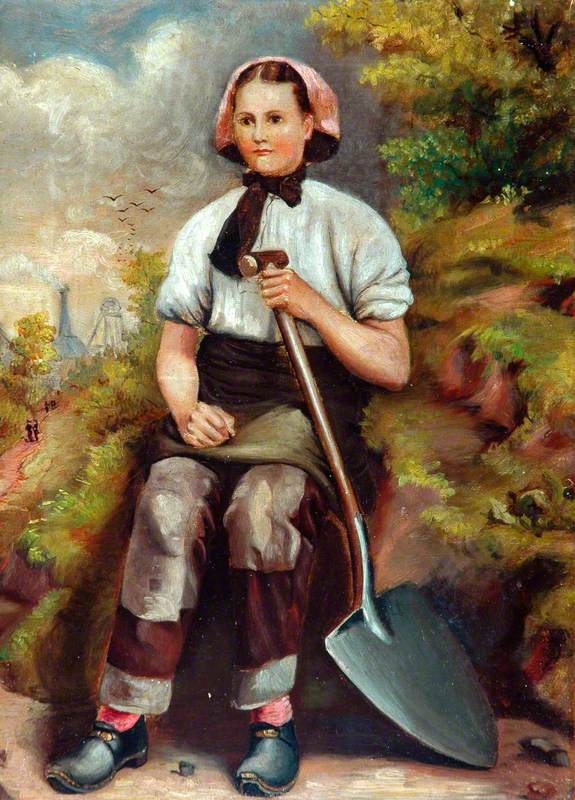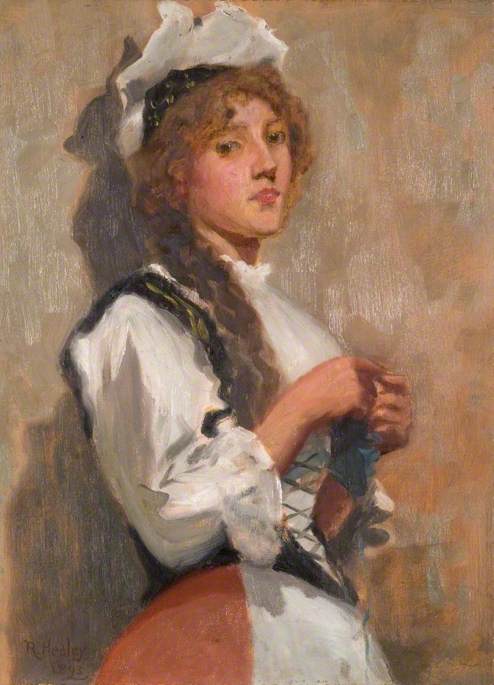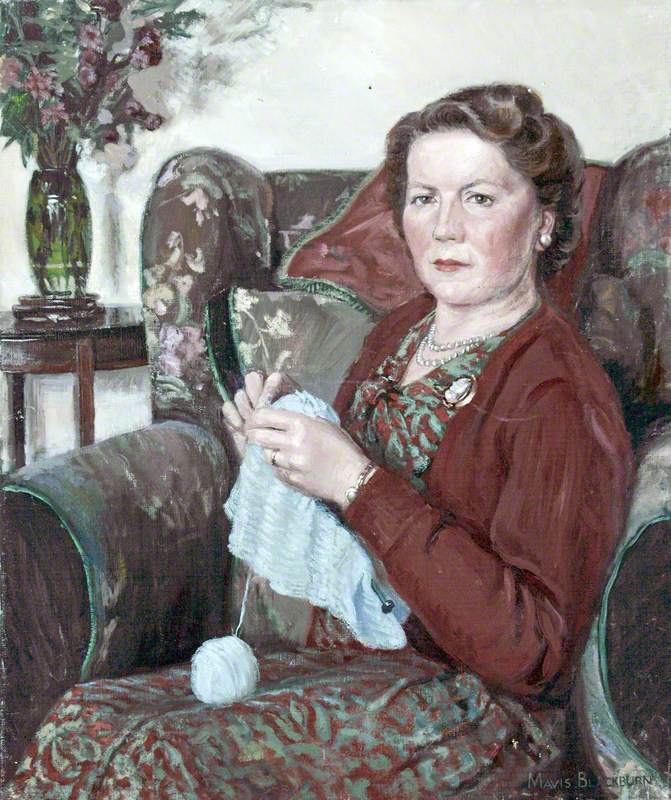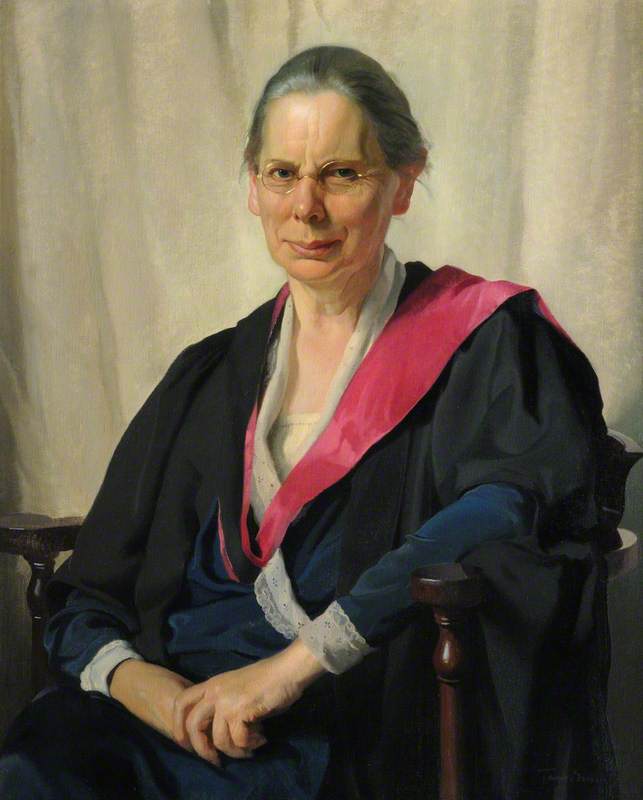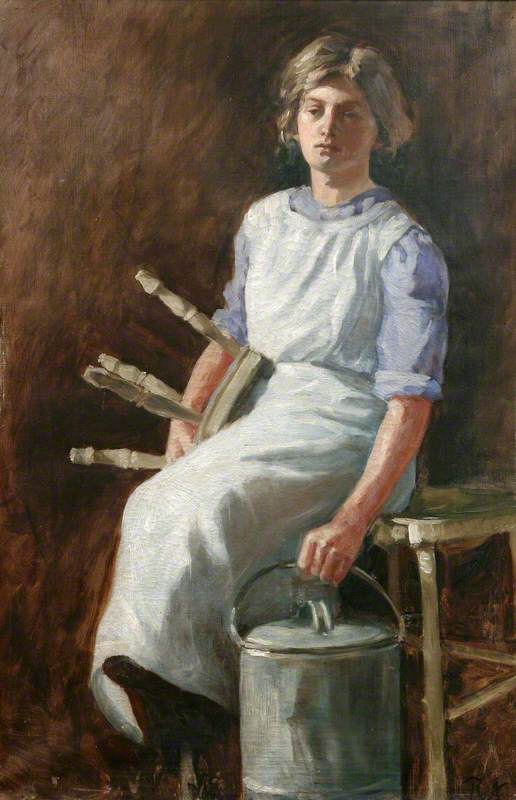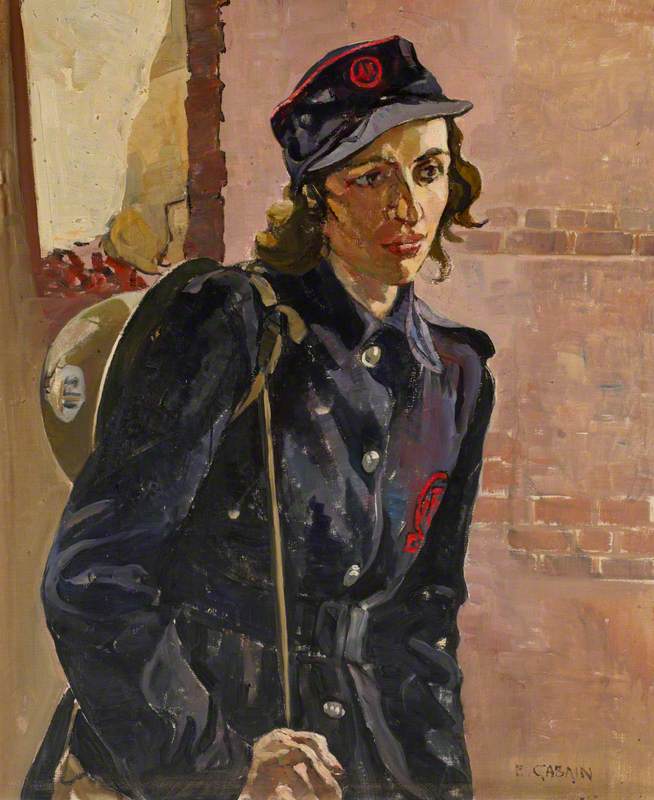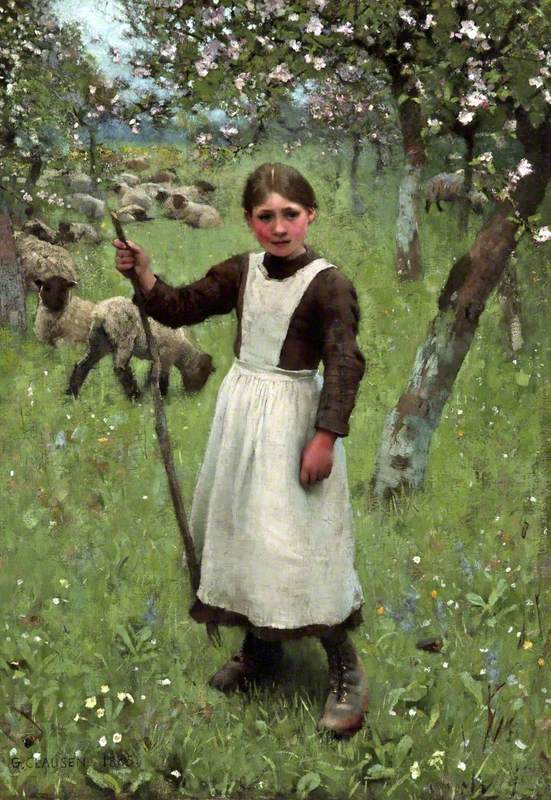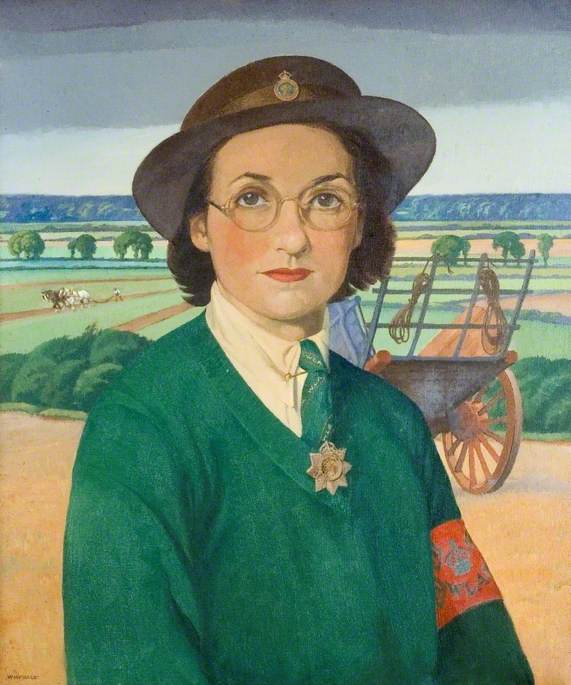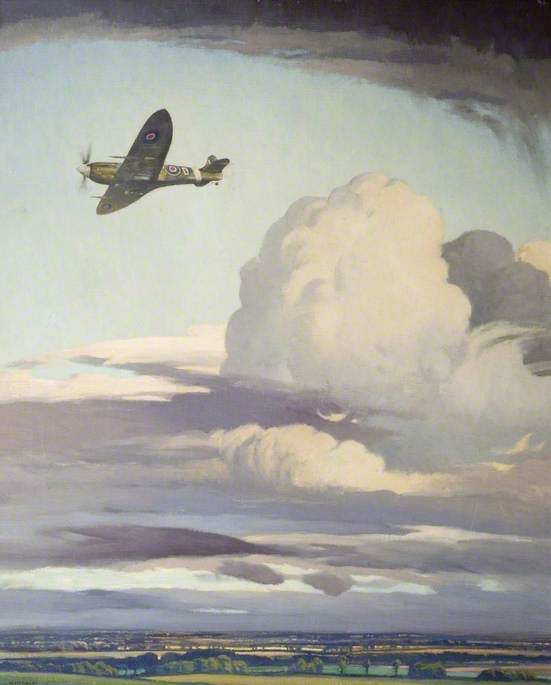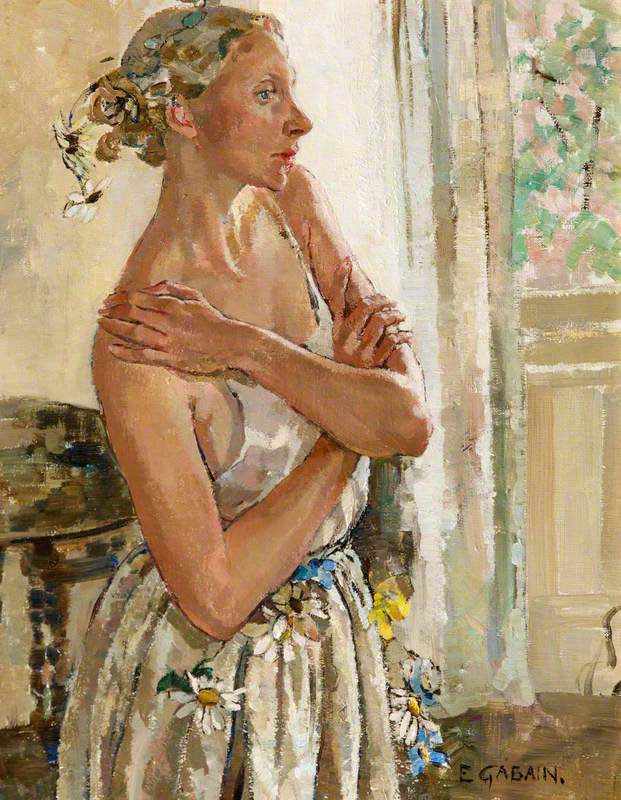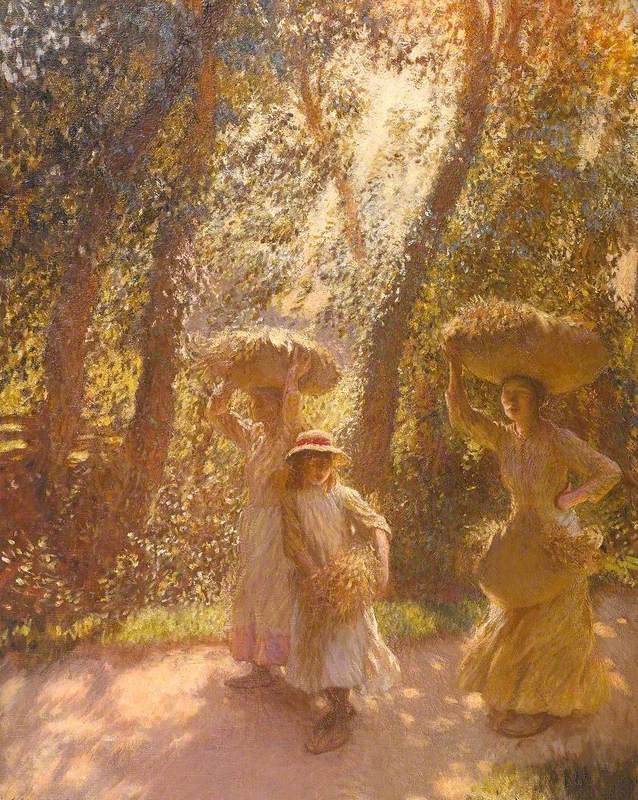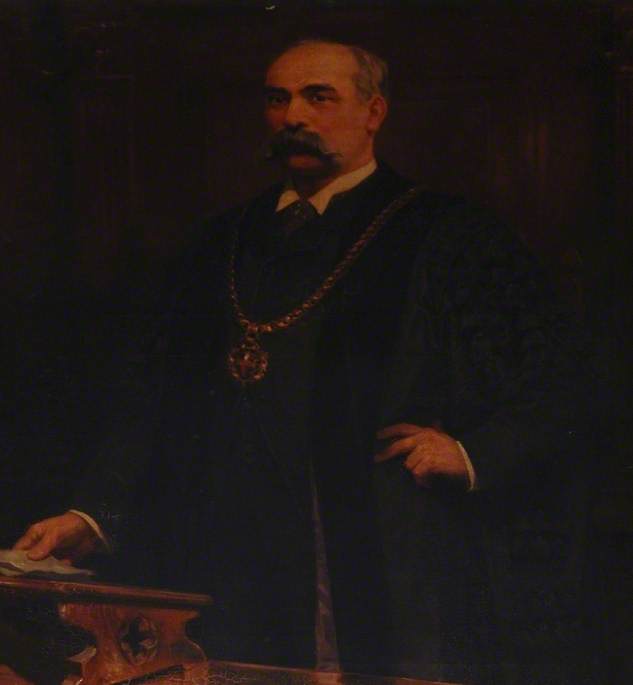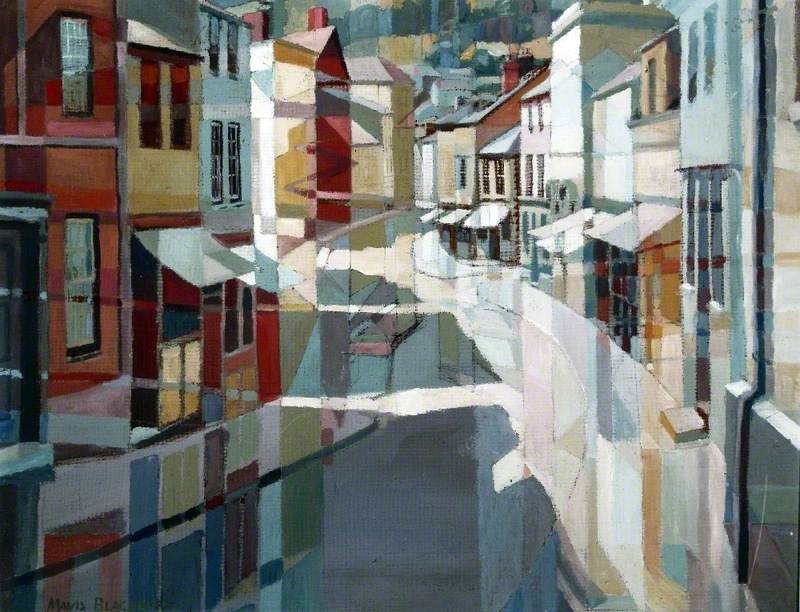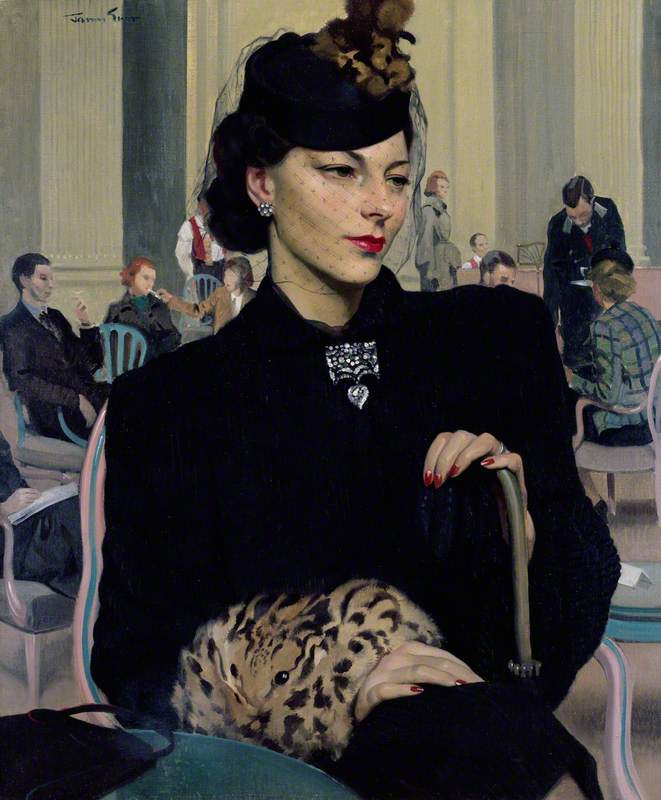I chose these paintings because:
- There are many paintings of women working where the head is bent over their work. They do not engage with the viewer. I find this makes the focus more on the work than the woman. She has been de-personalised. So I chose paintings where the subject gazes out at us, even though this means that she has either paused her work or sits dressed to reflect her work.
- these women look at us and their gazes are complex. Is their gaze inward or outward?
- these women are productive in their work and in their pastimes
- they are socially diverse
- and quite simply, their gazes fascinate me
-
Pit Brow Girl 1895
The sitter seems devoid of emotion, sanitised and without the context of her work. Yet it's the gaze into the distance that engages us. Her face seems closed and withdrawn. What is it that she does not wish us to see in her eyes? Is she so tired that she just stares into the middle distance? Or is she dreaming of a different future to the life she lives?
Hannah Keen (1873–1899)
Oil on canvas
H 39 x W 29 cm
National Coal Mining Museum for England
-
A Girl in Costume Knitting 1893
A world-weary gaze, at odds with the youthful subject. You feel that nothing would surprise this girl. Her gaze seems to see you and look through or past you at the same time.
Ralph Hedley (1848–1913)
Oil on panel
H 40 x W 29.4 cm
Laing Art Gallery
-
Woman Knitting
A gaze that is hard to interpret. Have we interrupted her and is that unwelcome? There's a guarded, defensive quality; an inwardness. If we sat alongside her we would not see what she is seeing. The picture of middle class conformity; her rebellion is in her gaze.
Mavis Blackburn (1923–2005)
Oil on canvas
H 70 x W 50.8 cm
Williamson Art Gallery & Museum
-
The gaze
Mildred Katherine Pope, Vice-Principal (1929–1934) 1934What a knowing, experienced look. This is no one-dimensional academic. This is a woman who wears the males robes of academia and makes them her own. 'I know you and I know the world', she seems to be saying. She steadiness of her gaze speaks of wry humour and deep humanity.
Herbert James Gunn (1893–1964)
Oil on canvas
H 75 x W 61 cm
Somerville College, University of Oxford
-
The Milkmaid c.1912
This girl gazes away from us. She is almost blank with lack of interest. A stony gaze that defies us to see her as anything other than an individual.
Ruth Simpson (1889–1964)
Oil on canvas
H 92 x W 61.5 cm
Penlee House Gallery & Museum
-
Auxiliary Fire Service Girl, City Fire Station 1940
Beautiful and sad eyes. A gaze that seems to hold pain within it. And no wonder.
Ethel Léontine Gabain (1883–1950)
Oil on canvas
H 78.7 x W 66 cm
Southwark Art Collection
-
The Shepherdess 1885
A defiant girl protecting the sheep. If we were to retitle this today, we might say rather 'Child labourer'. Her gaze is both wary and watchful.
George Clausen (1852–1944)
Oil on canvas
H 64.7 x W 46 cm
Walker Art Gallery
-
Mrs Pat Rule, née Detmold, Mayor of Royston (1974–1976 & 1980–1981) 1940s
A resolute and determined gaze. With no show of emotion, all the force of her personality is in her eyes.
Ernest Herbert Whydale (1886–1952)
Oil on canvas
H 61 x W 51 cm
Royston & District Museum & Art Gallery
